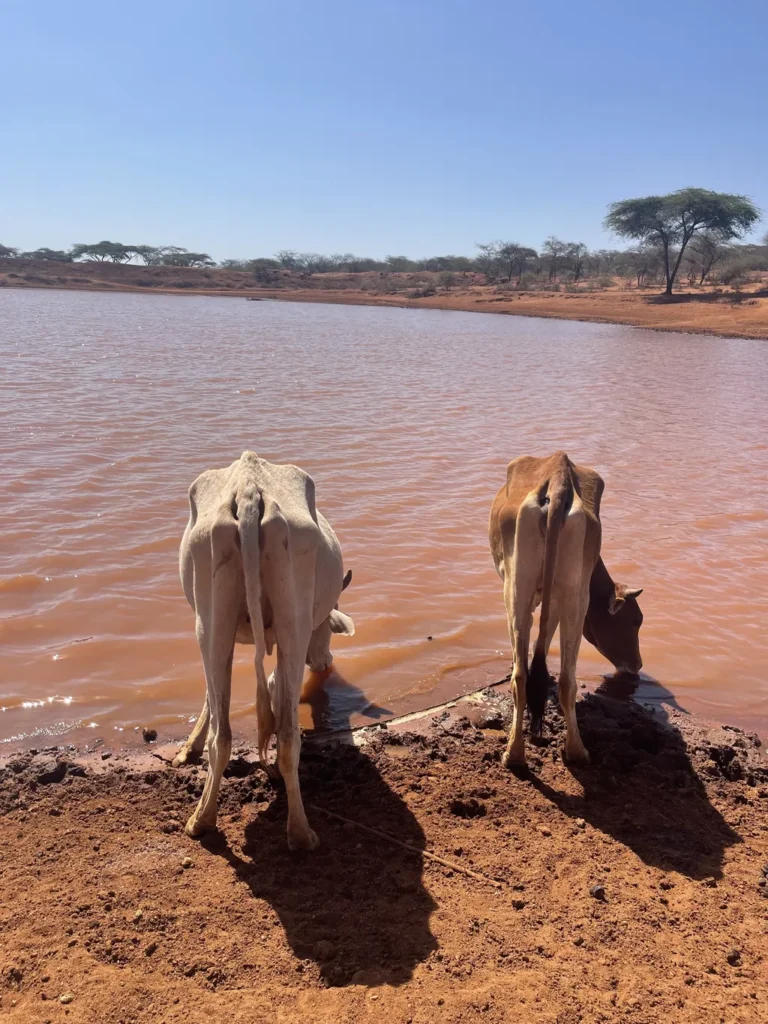In the arid landscapes of Ethiopia’s Mid-Rift Valley, where water is a precious commodity, a recent study has shed light on the resilience of indigenous sheep and goats to naturally saline water. The research, led by Diriba Tulu from the Africa Center of Excellence for Climate Smart Agriculture and Biodiversity Conservation at Haramaya University, explores the physiological and biochemical responses of these animals to the challenging conditions posed by Lake Basaka’s saline waters.
Climate change has exacerbated water salinization and acidification, posing significant challenges to animal health and productivity. Tulu’s study, published in the journal ‘Pastoralism’ (which translates to ‘Nomadic Grazing’ in English), aimed to assess the resilience of local livestock to these harsh conditions. The findings reveal a complex picture of adaptation and stress, with implications for livestock management and the broader agricultural sector.
The study focused on 260 healthy adult sheep and goats from 50 households, comparing those that drank water from Lake Basaka with others that had access to freshwater. The physicochemical analysis of Lake Basaka water showed alarmingly high salinity levels, with electrical conductivity at 3,992.53 μS/cm and sodium levels at 1,180.69 mg/L, significantly higher than those in freshwater.
“Our findings indicate that goats and sheep drinking saline water exhibited higher rectal temperatures and pulse rates compared to those drinking freshwater,” Tulu explained. “This suggests that the animals are experiencing physiological stress, but remarkably, their bodies are adapting to these conditions.”
The hematologic results were equally revealing. Animals consuming saline water had elevated hemoglobin levels and red blood cell counts, indicating an adaptive response to maintain oxygen transport in the body. However, biochemical profiles showed decreased glucose and cholesterol levels, along with increased urea and creatinine, pointing to potential long-term health impacts.
“While the animals are showing remarkable resilience, prolonged exposure to saline water may impact their productivity and overall health,” Tulu cautioned. “This has significant implications for the livestock sector, particularly in dryland regions where water resources are limited and salinization is a growing concern.”
The study’s findings highlight the need for further research on seasonal changes, interspecies resilience, and sustainable water management strategies. As climate change continues to alter water resources, understanding and enhancing livestock resilience will be crucial for maintaining agricultural productivity and food security.
“This research is a stepping stone towards developing strategies that can help livestock adapt to changing environmental conditions,” Tulu added. “By understanding the physiological and biochemical responses of these animals, we can better manage their health and productivity, ensuring the sustainability of pastoral systems in the face of climate change.”
As the world grapples with the impacts of climate change, studies like Tulu’s provide valuable insights into the resilience of livestock and the need for sustainable water management practices. The findings not only contribute to the scientific community but also offer practical recommendations for farmers and policymakers, ensuring that livestock remain a viable and productive resource in the face of environmental challenges.

